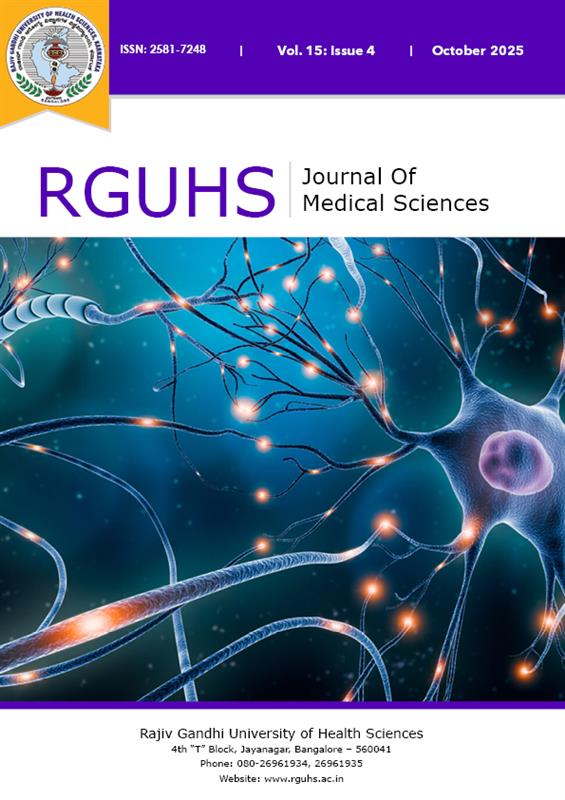
RGUHS Nat. J. Pub. Heal. Sci Vol: 15 Issue: 4 eISSN: pISSN
Dear Authors,
We invite you to watch this comprehensive video guide on the process of submitting your article online. This video will provide you with step-by-step instructions to ensure a smooth and successful submission.
Thank you for your attention and cooperation.
Varun Talanki*
* Corresponding Author:
Varun Talanki, 194, Pond Path, Setauket, NY 11733, USA
Student, Stony Brook School of Medicine, New York, NY, USA
Faculty Advisor: Catherine Messina, MahadevappaRampure Medical College, Gulbarga, India Advisor: P.S. Shankar

Abstract
Access to health care services has been limited in rural areas of developing countries. This has been particularly true in India. The purpose of this study was to investigate which population subgroups in rural Karnataka are less likely to seek medical attention in order to help devise targeted legislation to improve healthcare in India. We studied healthcare access in rural subpopulations of Karnataka, India with a particular emphasis on access to primary health services as well as mental health services. Mental health research and healthcare are nearly absent in rural regions of India. Data was obtained from a population-based sample of women and men residing in rural villages (aged 18-98) in Karnataka, India during May-August 2012 (n=353). Multiple logistic and linear regression analyses were conducted to evaluate the agreement between responses about demographic and healthcare characteristics.
Keywords
Downloads
-
1FullTextPDF
Article
none
Supporting File
References
none